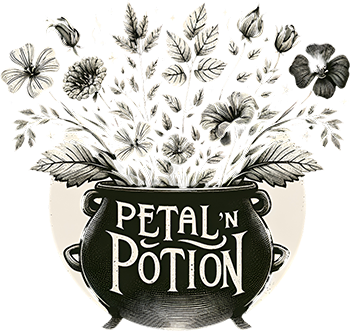C a l e n d u l a
Calendula (Calendula officinalis), commonly known as marigold, is a flowering plant native to Southern Europe.
It has been used for centuries in traditional medicine for its therapeutic properties, particularly for skin health and wound healing.
Benefits
- Wound Healing: Promotes faster healing of wounds, cuts, and abrasions.
- Anti-Inflammatory: Reduces inflammation, helping with conditions like eczema, dermatitis, and other inflammatory skin disorders.
- Antimicrobial Properties: Exhibits antibacterial, antifungal, and antiviral effects that help prevent infection.
- Skin Health: Treats various skin conditions such as acne, rashes, and burns, and soothes dry or irritated skin.
- Oral Health: Supports oral health by reducing inflammation and treating conditions like gingivitis and mouth ulcers.
- Antioxidant Properties: Provides antioxidants that protect cells from oxidative stress and damage.
- Digestive Health: Supports digestive health by soothing the gastrointestinal tract and alleviating symptoms of indigestion.
Active Compounds
- Flavonoids: Provide antioxidant and anti-inflammatory benefits.
- Triterpenoids: Contribute to anti-inflammatory and wound-healing effects.
- Saponins: Offer antimicrobial properties and support immune function.
- Carotenoids: Provide antioxidant benefits and promote skin health.
- Essential Oils: Contain antimicrobial compounds that help protect against infections.
Who Should Avoid This
- Individuals with Allergies: Those allergic to calendula or other plants in the Asteraceae family (such as daisies, chrysanthemums, and ragweed) should avoid it.
- Pregnant and Nursing Women: Due to limited safety data, it is advisable to consult a healthcare provider before use.
- Individuals on Medication: Particularly those taking sedatives or blood pressure medications should consult a healthcare provider to avoid interactions.
Warnings
While calendula offers numerous health benefits, some precautions and potential side effects should be considered:
- Allergic Reactions: Can cause allergic reactions in some individuals, particularly those sensitive to plants in the Asteraceae family.
- Pregnancy and Breastfeeding: Consult a healthcare provider before use, as safety data is limited.
- Interactions with Medications: May interact with certain medications, including sedatives and antihypertensives.
Usage Guidelines
Calendula can be used both short-term and long-term, depending on the condition being treated. For acute issues such as wounds or skin irritations, it is typically used until symptoms improve. For ongoing benefits such as skin health or digestive support, longer-term use may be appropriate but always under the guidance of a healthcare professional. Always consult with a healthcare provider to determine the correct dosage and duration for your specific needs.
